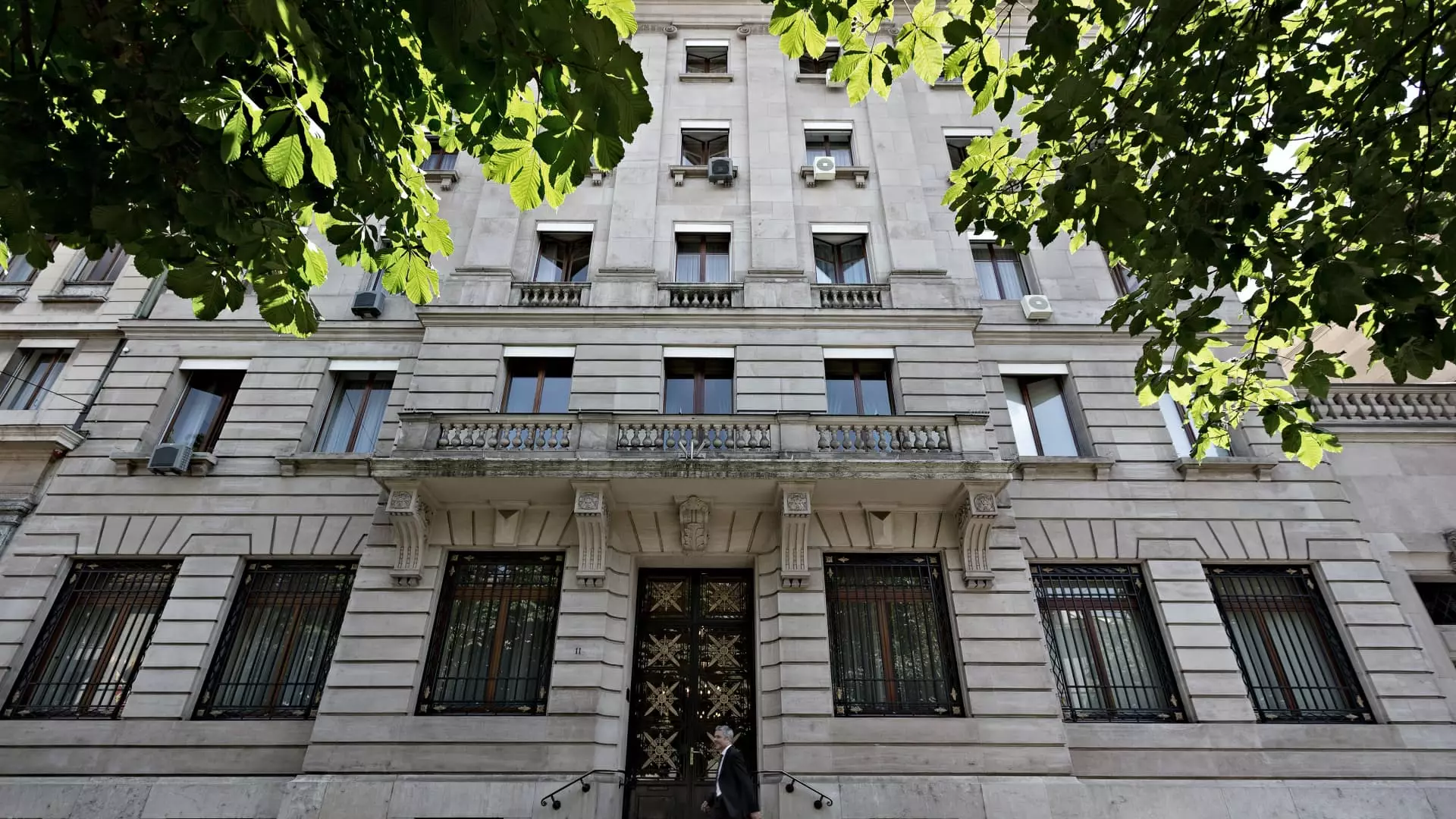Lombard Odier, one of the oldest and most prestigious private banks in Switzerland, finds itself embroiled in a significant legal scandal following an indictment by Swiss prosecutors. The Office of the Attorney General of Switzerland (OAG) has leveled serious accusations against the bank, alleging “aggravated money laundering” connected to a notorious criminal organization led by Gulnara Karimova, the daughter of the deceased authoritarian president of Uzbekistan, Islam Karimov. The gravity of these charges highlights critical issues around regulatory compliance and the ethical responsibilities of financial institutions.
The OAG issued a statement indicating that the indictment was filed against both Lombard Odier and a former employee at the Federal Criminal Court of Switzerland. This legal action stems from claims that the accused individuals helped to obscure the proceeds of illicit activities conducted by Karimova’s organization between 2005 and 2012. Investigations suggest that significant amounts of laundered money may have been funneled through accounts at Lombard Odier, prompting the bank’s status as a focal point of the inquiry.
Karimova’s legal troubles are far-reaching, as she faces multiple indictments related to her involvement in money laundering operations. After her father’s passing in 2016, the extent of her alleged misdeeds came to light, including conspiratorial activities supported by elite banking mechanisms in Switzerland—a country infamous for its strict banking secrecy laws.
In the wake of the indictment, Lombard Odier has publicly rejected the allegations, asserting its commitment to compliance and transparency. The bank described the prosecution’s case as lacking in merit and has vowed to defend itself vigorously. Notably, Lombard Odier also highlighted that it had previously initiated a proactive reporting of suspicious activities to authorities, a step that it believes showcases its commitment to maintaining ethical banking practices.
Despite the bank’s defense, the implications of these allegations are substantial. They not only tarnish the reputation of a centuries-old institution but also raise pressing questions for the broader banking sector regarding governance structures, risk management, and the integrity of their operations.
The scandal surrounding Lombard Odier isn’t an isolated incident but rather part of a growing trend of increased scrutiny on financial institutions in Switzerland. As global efforts to combat money laundering intensify, banks must adopt more stringent controls and ethical practices to prevent misuse of their services. The Lombard Odier case serves as a crucial reminder of the need for transparency in banking operations and the inherent risks of complicity in international corruption schemes.
This case also underscores a pivotal moment for Switzerland’s banking sector as it grapples with its legacy of banking secrecy while facing mounting pressure from both domestic and international watchdogs. The outcomes of this legal battle could shape the future of banking regulations in Switzerland and influence how banks engage with politically exposed persons and entities in high-risk jurisdictions.
The Lombard Odier indictment marks a critical juncture for both the bank and the Swiss banking community at large. As investigations continue, the repercussions of this case will likely prompt a reevaluation of how financial institutions uphold ethical standards and the importance of fostering a culture of compliance. The banking sector’s response to this scandal will play a vital role in determining its future credibility and reputation in the global financial landscape.

